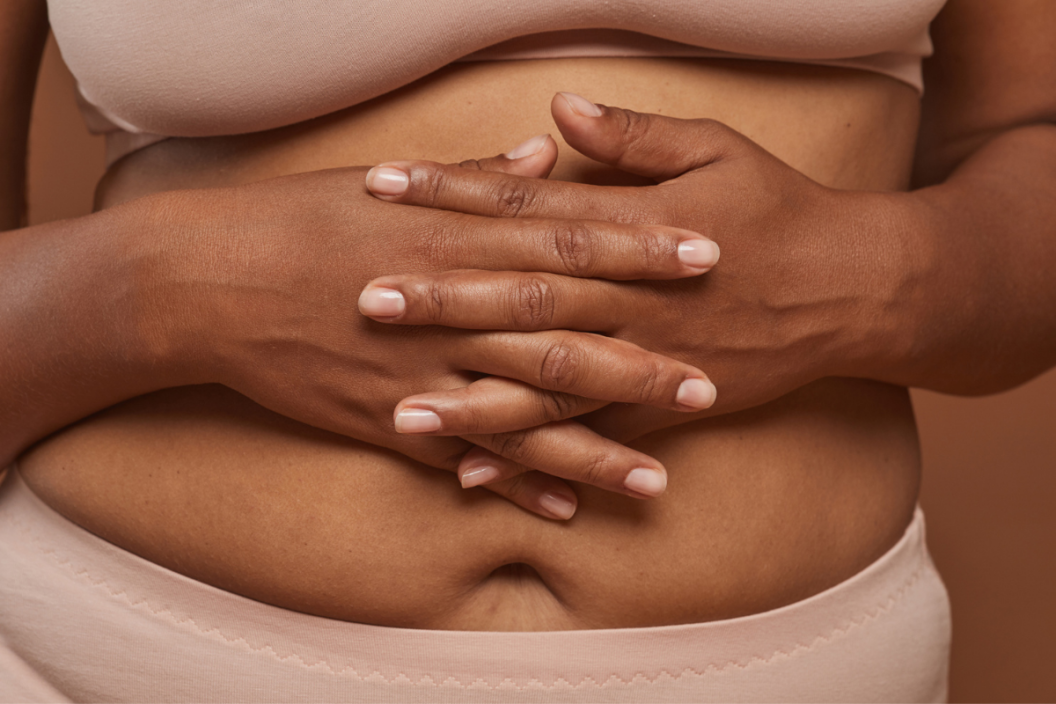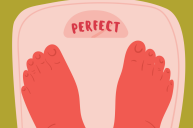Since I was a child, I knew that diet culture was problematic. The women in my family would read women's magazines that published bland, low-calorie diets that mostly included "a healthy breakfast" of cottage cheese with canned peaches or a boiled egg and dry toast. Those magazines rarely featured Black women unless they were advertising something food or service-related.
Diet culture can be dangerous for a lot of women and girls, but it's highly problematic for Black and brown girls because systemic racism in culture, medicine, and the media has ignored, fetishized and over-sexualized our bodies. Our beauty and form has been mocked and appropriated and very little research has been done on Black women's body image issues or eating disorders.
According to a 2009 study from the University of Southern California, "Black girls are 50 percent more likely to be bulimic than white girls". In another study about media's influence on middle and high school-aged Black girls the study concluded that:
"Overall, further research is needed in this area in investigating ED prevention in African-American middle school to early high school age girls living in an urban setting. The current study shows the importance of mainstream sociocultural identification in the development of ED symptomatology and how cultural ethnic identification is not as important when girls are already part of a set cultural ethnic group."
Lizzo and the Legacy of Black Body Confidence
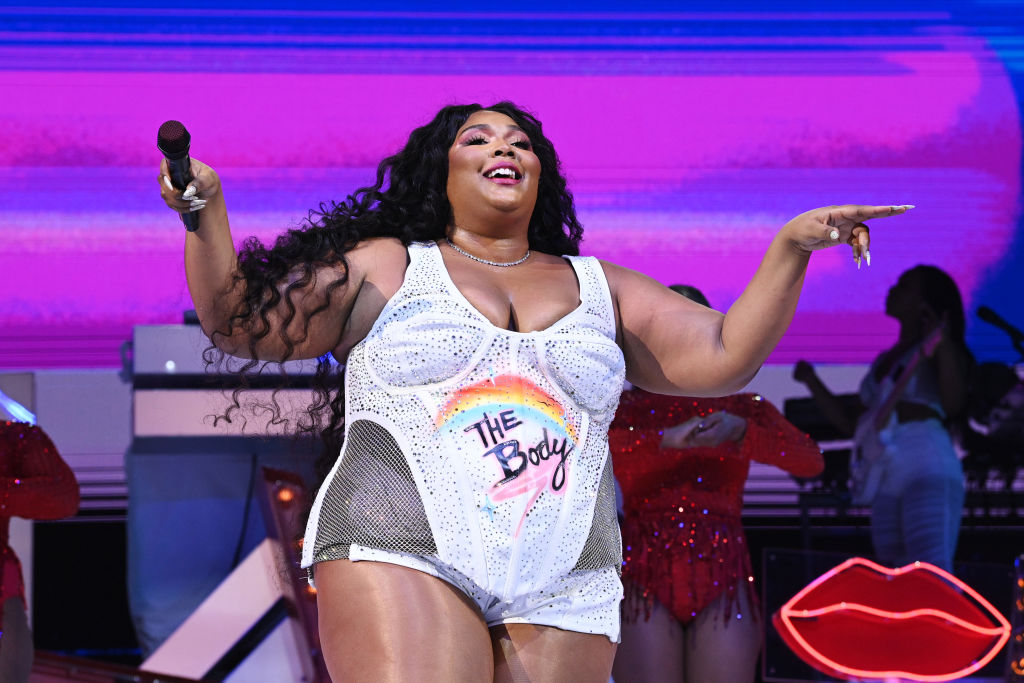
(Photo by Bryan Bedder/Getty Images for American Express)
In researching this topic, I was surprised by how little I knew about the subject and how my culture's traditional acceptance of bigger or thicker bodies is now boiled down to Lizzo's body positivity. Honestly, the most confident women I've known throughout my life are bigger, Black women.
Lizzo is the first in a long line of big, beautiful, confident Black women. I grew up watching Mabel King, Nell Carter, Ester Roll, and the legendary Jackee' Harry who made thick chicks like me feel seen, heard and dare I say sexy. The brilliant and beautiful comedian Monique made her career out of being fat, fabulous, and happily married. She only lost weight because of health reasons, not aesthetics.
Lizzo's confidence comes from the legacy of love and acceptance of larger Black women's bodies because our bodies have continued to bring life, comfort, joy, and protection for our families and others. Therefore, Lizzo's self-love and swag is in her ancestral DNA - she was born "a bad chick."
However, outside of our community, Black women have rarely been praised for what I call our "sista silhouettes." Having a voluptuous body with smaller waists, curvy round hips, thicker thighs, and a large bottom seems to only look good when it's in white or light skin like the Kardashians. Lizzo arguably doesn't have that body type either - but she's still naturally beautiful.
My Gam on the other hand did have killer curves, as pictures revealed from her younger years. By the time I was born she was a happily married, chubby church lady. In her later years, she walked, gardened, and did calisthenics for exercise and used that as her measure of health. As long as she could touch her toes she was okay. Her sister was a different story. My great Aunt didn't like her body and was always searching for the next fad or quick fix to get thin. I first learned about diet culture from her, my mother, and her twin sister.
The American Standard of Beauty
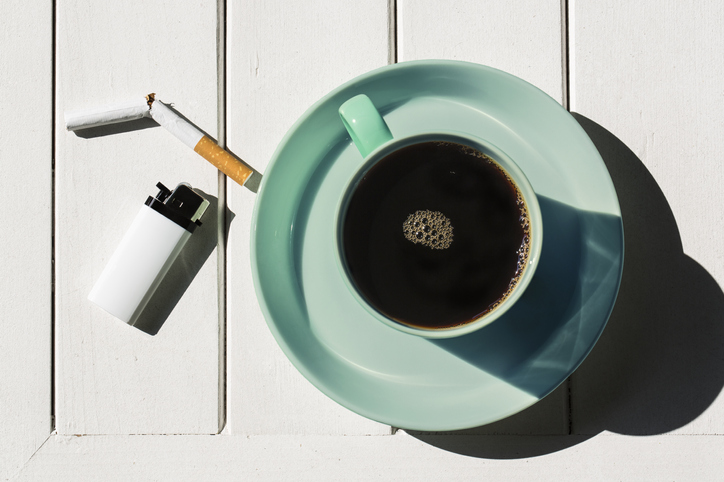
Getty Images
Ironically, my Great Aunt and my mom were the only blonde bombshells in our family. They were both beautiful, racially ambiguous, and faithfully dyed their Anita Baker styled hair honey blonde. I would sometimes catch my mom and Great Aunt ordering diet pills from magazine ads. And when they'd take them, they complained that they were speed pills. My mom was tall, thin, cute, and curvy, and she knew it. She'd brag that she was on a model's diet of coffee, Coca-Cola, and cigarettes - every time she wanted to eat she'd grab a cigarette. The goal was to get or stay thin at all costs. My mother never went past a size 10, but still died from diabetic complications in her 40's.
For ages, TV, film and print media made it clear that the American standard of beauty was Marilyn Monroe, Farah Fawcett, Pam Anderson and Christie Brinkley. The closest celebrity I found that was shaped like me was Jackee' Harry or Kim from A Different World.
Waning Body Positivity
While it was widely known that my Great Aunt was biracial, she knew that having a thinner, white person's body was unattainable. Unlike my mother, she, my Gam and I shared short, shapely bodies with thick thighs, smaller waists, and bigger bosoms.
Even when I was extremely thin, I was always bigger or taller than my white peers and it always bothered me. In elementary school, I took gymnastics and noticed how other Moms looked at me. I had what my mom called a little butt-butt and muscular thighs from running but I could still do full splits and pikes, and leap and twist better than the other girls who had more training. Everyone thought I was older.
I started to get self-conscious in gymnastics. I noticed that my thighs touched and didn't have what we now call a "gap" at 8 years old. I remember asking my mom why and she said, "You're just built that way," and changed the subject as she puffed on a nicotine meal replacement.
Oddly enough I knew my body type was still desirable in my community even though I wasn't America's ideal. I knew it because the women in my family who were shaped like me were married to hardworking men who showered them with love and affection. I watched my Pop kiss my Gam every day before he went work and flirt and play with her when he returned. My Gam and Great-Aunt were both housewives and homeowners in middle-class neighborhoods.
Dangerous Dieting Trends
I lived with my grandparents most of my life - who lived down the road from my Great Aunt and her family. Fast forward to middle school - I had stopped growing up and now I was really filling out and I didn't like it. From the neck down I looked older and more developed. By then the diet trends had seeped into school life as puberty pudge was attacking most of us, but we were too young to really do anything except laugh and joke about it.
It wasn't until high school in the '80s that I started noticing the dangerous trend of starvation diets, wiring, and diet pills like Fen-Phen. I would occasionally take my Mom's diet pills but I knew my body responded well to exercise so I joined the track team instead.
I became obsessed with trying to lose weight because my track coach consistently harassed me about how big my thighs were even though I was one of the fastest girls in tryouts. One day at practice, the male coach ran over and started slapping and punching my thighs and asked me how I could run so fast. I remember him laughing and saying I needed to lose weight and run hurdles at the next practice.
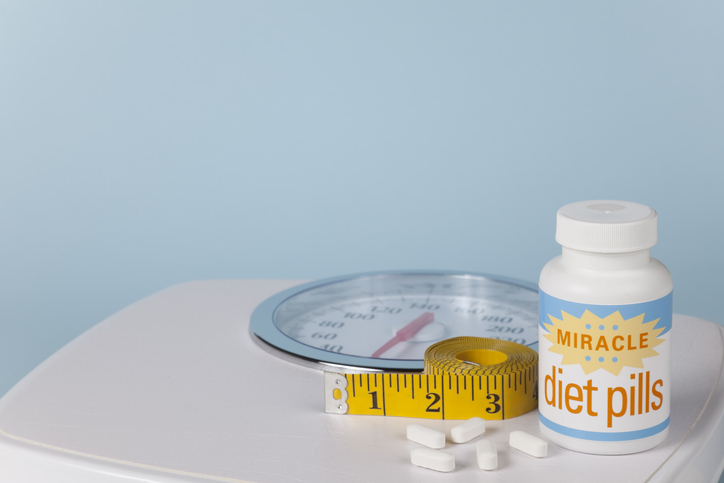
Getty Images
My 5 ft body and stubby legs couldn't clear the hurdles. I tried a couple times and thank God I didn't seriously injure myself after falling. The next day I quit. I had gone on a starvation diet, drinking only extra strong sweet tea and water for 3 days to shrink my thighs to fit into the tiny track shorts because I was told I couldn't wear biker shorts underneath (for modesty). I ended up in the hospital with heart palpitations from too much caffeine in my system.
In college, my first gynecologist called me fat and stupid even though I was only 150 pounds, walked or ran 2-3 miles 3-5 times a week, and also did step aerobics and African dance classes. I started taking carb blockers and my weight would yo-yo between 20 and 30 pounds heavier or lighter.
I would spend the rest of my life battling with my weight, self-conscious about my body and thighs. My body positivity was gone by my 25th birthday.
Beauty Is in the Eye of the Beholder
Today, I'm significantly heavier and I've given up on having the perfect body. I gave birth to a beautiful quasi healthy child and my stomach is just fugly. There's no nice way of saying it, but my butt to gut ratio is still not too bad, so I feel like my grandmother - I can still touch my toes so I guess I'm alright physically - but mentally I was robbed of the sweet bliss and security of being happy in the body and skin I'm in.
Luckily the younger generation of bigger, beautiful Black women like Lizzo, Nina Parker, and Amber Riley are carrying the legacy of communal self-love and acceptance forward for seasoned sisters like me who forgot that we're worthy, wanted and wonderful - even if our BMI is high.
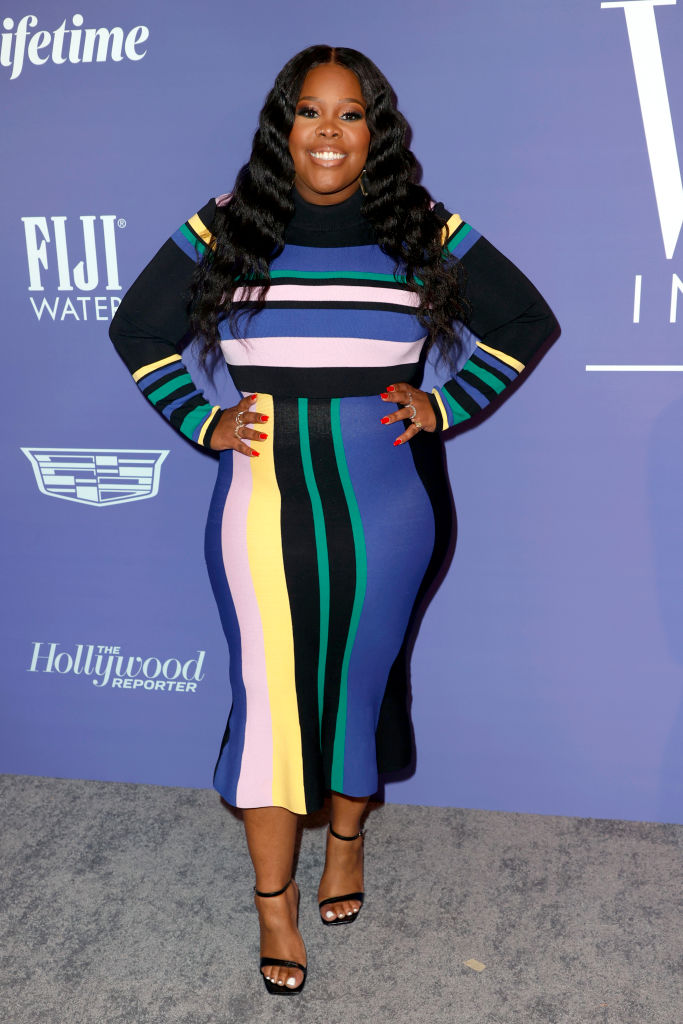
(Photo by Frazer Harrison/Getty Images)
P.S. "Thick thighs really do save lives" - according to a Harvard study thicker thighs - with a smaller waist may lower the risk of heart disease.
I hope this opens a conversation in and outside of my community about unhealthy diet culture and how it's rooted in racist and patriarchal standards of beauty that most women can't achieve - but especially most Black and brown women and girls.
If "beauty is in the eye of the beholder" - it's time to de-colonize our eyes - we can start by reading Thick, a collection essays from Professor Tressie McMillan Cottom about "beauty, media, and money" as it relates to Black women.
